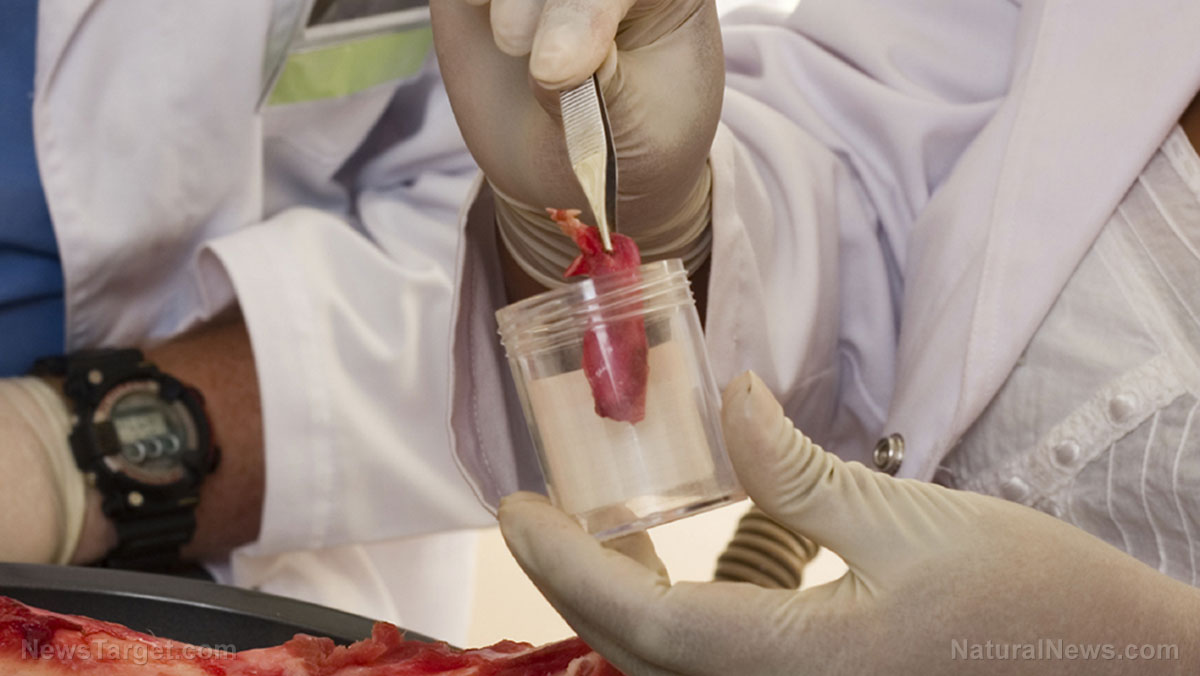Subway tries to sue the journalists who concluded Subway’s roasted chicken is only 53.6% real meat
12/21/2019 / By Lance D Johanson

In a desperate bid to protect what’s left of their image, Subway sued two independent journalists who say they discovered that Subway chicken contains as little as 42.8% chicken DNA. Subway’s $210 million lawsuit sought to shut up the two journalists who tested the company’s meat in 2017. The lawsuit has been thrown out by a Canadian Superior Court; however, Subway is currently contesting the third-party laboratory results.
The 2017 investigation was led by the Canadian Broadcasting Company’s Marketplace at Trent University. The Marketplace journalists conducted DNA testing on six chicken samples obtained from five fast food restaurants. Most of the chicken samples turned out to be partially fake, they reported, restructured with soy protein. The McDonald’s, A&W, Tim Horton’s, and Wendy’s chicken samples contained between 88.5 percent and 89.4 percent actual chicken DNA.
The Subway chicken samples were far worse, say the journalists. According to the laboratory results, Subway’s oven roasted chicken contains only 53.6% chicken, and Subway’s chicken strips only contain 42.8% chicken. Subway disputes the findings. (Our own in-house lab has not repeated these tests, since we don’t do DNA analysis, so we cannot independent confirm or deny the findings.)
Subway still haunted by their longstanding pedophile spokesman
Subway continues to lose credibility with the public. It seems the company is still haunted by their longtime spokesman (Jared Fogle) who turned out to be a pedophile. A few years ago, the company was also exposed for using azodicarbonamide in their “freshly baked” bread. The presence of this “yoga mat” chemical tainted the company’s “Eat Fresh” image, and Subway had no choice but to change their ways, removing azodicarbonamide from their products in 2014.
Now, it turns out the company might be in the business of selling fake meat, a soy protein product that hardly resembles real chicken. With nothing to lose, Subway tried to sue the journalists for falsely publishing “reckless and malicious” information that “lacked scientific rigor.” That lawsuit has been thrown out by an Ontario Superior Court. The court ruled that the Canadian Broadcasting Company has every right to engage in investigative journalism. Their right to publish the information is protected under a statute called “SLAPP” or Strategic Lawsuits against Public Participation. The statute was put in place to protect free speech and encourage individuals to speak out on matters of public interest without worrying about lawsuits and corporate retaliation if they told the truth.
Justice E.M. Morgan wrote:
The Marketplace report dealt with the ingredients of sandwiches sold by popular fast food chains. It relayed the results of DNA tests performed by the Trent laboratory, which indicated that two types of Subway chicken products contained significantly less chicken DNA than other products tested.
Furthermore, the Marketplace report raised a quintessential consumer protection issue. There are few things in society of more acute interest to the public than what they eat. To the extent that Subway’s products are consumed by a sizable portion of the public, the public interest in their composition is not difficult to discern and is established on the evidence.
In the lawsuit, Subway essentially wanted compensation for lost customers, lost sales, and a destroyed reputation. Even though the journalists are free to publish their lab results, Subway is currently contesting those laboratory results. Since the ruling, Subway produced their own laboratory testing to show that their chicken only contains 1% soy filler. It’s just hard to trust an organization that had a pedophile promoting their brand for many years.
For more on food composition, be sure to check out Food.News.
Sources include:
Submit a correction >>
Tagged Under:
chemical bread, deception, fake meat, fast food, fillers, free speech, ingredients, investigative journalism, pedophiles, real investigations, reputation, soy protein, subway, toxic ingredients
This article may contain statements that reflect the opinion of the author
RECENT NEWS & ARTICLES
COPYRIGHT © 2022 FakeMeat.news
All content posted on this site is protected under Free Speech. FakeMeat.news is not responsible for content written by contributing authors. The information on this site is provided for educational and entertainment purposes only. It is not intended as a substitute for professional advice of any kind. FakeMeat.news assumes no responsibility for the use or misuse of this material. All trademarks, registered trademarks and service marks mentioned on this site are the property of their respective owners.

















